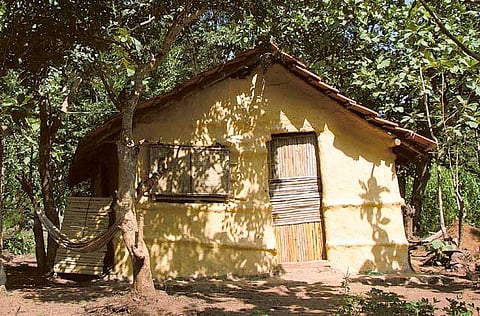Indian school aims for energy self-sustainability
Musical academy shortlisted as finalists for the Global High Schools Zayed Future Energy Prize

Abu Dhabi: At a school in India’s southern state of Karnataka, power cuts often disrupt studies.
And the lack of electricity access means that many pupils return home to unlit houses. But the Kalkeri Sangeet Vidyalaya’s passion towards sustainability, including the establishment of environmentally-friendly buildings and an ongoing project to increase the use of solar lighting, have shortlisted among it the finalists for the upcoming Zayed Future Energy Prize.
“The goal of the project is to make the school entirely self-sustainable in terms of energy. We hope to replace incandescent bulbs in classrooms with energy-efficient light emitting diode (LED) lights and compact fluorescent lamps (CFL). At the same time, we hope to use solar lighting for hostels, computers, projectors and water heaters and water pumps. This will create fewer disruptions [for evening classes],” Barbara Schmid, social welfare manager at the school, told Gulf News in an email interview.
“Moreover, any funds saved from energy use will be used to provide solar home lighting systems for meritorious pupils whose homes are not electrified,” she added.
Kalkeri Sangeet Vidyalaya (which translates to Kalkeri Music School) is in contention for the Global High Schools category within the Zayed Future Energy Prize. The ceremony is expected to take place on January 20 as part of Abu Dhabi Sustainability Week. Five winners, one school each from the American, European, Asian, African and Oceanic regions, will receive a cash grant of $100,000 (Dh367,000).
“In our institution, sustainability is seen as a way of life, not just a school project. All the school buildings are built sustainably, using locally-available materials such as bamboo, mud and cow dung. Garbage is sorted and recycled, reused or comported by pupils,” Schmid explained.
Meanwhile, a focus on using natural resources encourages the school to use ashes to wash dishes, and to filter soapy water so that it can be used in irrigation.
The specialist school enrols many pupils between the ages of six and 25 years who live in areas with the least access to power in India. Pupils attend regular classes, as well as special courses in musical education. Many pupils from the schools are also known to perform in musical concerts across the country.
“Our core mission is to provide for the basic needs of children from disadvantaged backgrounds, supported by a creative and value-based education. [So] our pupils understand the difference between wants and needs and develop their ability to aspire for excellence with simple means and minimal resources,” Schmid said.
In addition to the other initiatives, the school also plans to build a green amphitheatre with any funds received.
“The facility will be built with mud blocks, rammed earth and bamboo, using solar energy for all sound and light requirements. This will not only improve the quality of our musical programmes, but also create awareness in the community. As many villagers, parents and nationally famous artists and politicians attend our recitals, they will be able to directly witness the opportunities offered by renewable energies when they visit the structure,” the social welfare manager said.
The school was shortlisted the Zayed Future Energy Prize last year, in the same category: Global High Schools Asia. The award was eventually given to the Shaikh Khalifa Bin Zayed Bangladeshi Islamia School in Abu Dhabi.
“The Global High School Prize has the potential to influence schoolchildren, teachers, parents and the general community to become more aware of the environment and the feasibility of sustainable energy solutions for the future. As the world is highly in need of young sustainable energy champions, this project has the potential to create those champions,” Schmid added.
Sign up for the Daily Briefing
Get the latest news and updates straight to your inbox



